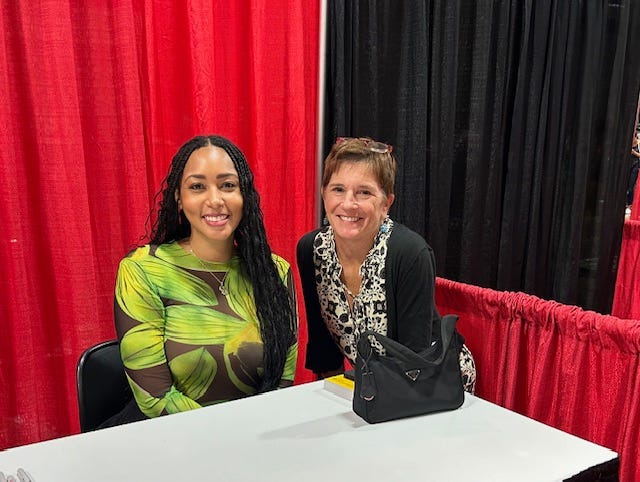Last week, my head was in parenting mode. This week, I’m focused more on the practice of writing. As we move forward in this blog, though, I’m continually surprised to recognize how the thread of tenacity flows through both lifelong endeavors.
Along the path of writing my first book (I’m maybe 2/3 of the way there), I’m grasping at any tidbit that can keep me productive. I’m rarely at a loss for content, as the twin threads of my brother’s brain injury and the first year of my son’s recovery from alcoholism have generated no shortage of material. In the chapter I’m currently writing, I’m smack in the middle of 1993, having just returned from my honeymoon and getting ready for the big move to Myrtle Beach – and away from my brother. I actually enjoy those hours in front of the computer, staring at the wall trying to remember, or imagine, what I was thinking at key milestones that I didn’t fully recognize as such until decades later. So, it’s not writer’s block that stifles me.
It’s the imposter syndrome that slams me upside the head once I’ve got a few pages down. Who the hell am I to think I can write a book? Who cares? Who’s going to read this? My inner critic doesn’t whisper. She screams in my ear.
I remember similar moments as a mother of young children, sitting amidst the mess of the house, the ringing phone, and the crying children around me, having lost my patience yet again. I could hear the voice in my head: I have no idea what I’m doing, and I’m definitely not doing it right — I am screwing up these children. I thought nearly anyone was more suited for the job than me.
During those moments as a writer, I’ve learned (most of the time) to close the computer and come back at it the next day. The mantra drilled into us in my MFA program comes back: The difference between writers who publish and those who don’t is that those who publish keep writing. Could it possibly be that simple? On the outside chance that it is, I spend at least a few minutes that day looking for inspiration. Usually, I find it.
Sometimes encouragement comes in the form of a friend who’s willing to read an early draft of a chapter. Sometimes it’s a podcast on writing that’s come recommended by a fellow reader/writer. Sometimes it’s a book so thoughtfully written that I’m still thinking and talking about it three days later. I’m forever scribbling down notes of books to read, podcasts to listen to, authors to look up. Once in a while, I even have the great fortune of attending a book festival or author reading that keeps my head in the writing game for days. It’s these generative practices that allow me to shut down that inner critic and focus instead on an idea, a quote, a conversation that will keep me going.
Parenting, strangely, is similar: when your mind shuts down and emotions boil over, take a deep breath and look outside yourself. Reach out to community.
So this week, I have two books and one podcast to recommend.
James, by Percival Everett
If you haven’t yet read this book that was shortlisted for the Booker Prize and a finalist for the National Book Award for fiction, it’s time you did. Everett (also known for his novel Erasure, upon which the award-winning film American Fiction was based) crafted this tale as a retelling of Huckleberry Finn with a twist: it’s told from Jim’s perspective. But, as both The Guardian and the Chicago Review of Books have pointed out, there’s no need to have read Twain’s work in order to understand and appreciate James. It stands on its own. And, I’ve heard the audio version of the book is amazing as well – narrated by Everett himself.
How to Say Babylon, by Safiya Sinclair
I had completed two entire years of reading virtually nothing but memoir – and in an MFA program, that’s five books a month -- before I came across this impactful work. How to Say Babylon, which won the 2023 National Book Critic Circle Award for autobiography and was listed on the NYT’s 100 Notable Books of 2023, tells the story of a girl growing up in a strict sect of Rastafari in Jamaica. In addition to her compelling and lyrical method of storytelling, Sinclair also recounts the history of the sect that most Americans, including myself, have only encountered through the music of Bob Marley and the film Bob Marley: One Love. It’s an amazing read. And, I had the thrilling honor of hearing Sinclair speak and even meeting her and getting my book signed at the National Book Festival in Washington, D.C. I fairly swooned
.
Write-minded podcast: “How to be Compulsively Readable, by Anne Lamott”
I can’t believe how much I missed out before I started listening to writing podcasts. Most of them feature interviews with authors, talking not just about writing but about the topics of their books, which equates to life. Whether you’ve read Anne Lamott’s classic writing text, Bird by Bird, or been taken with her down-to-earth, sometimes irrelevant style in her autobiographical books including Operating Instructions (chronicling her thoughts during her son’s first year), Hallelujah Anyway: Rediscovering Mercy, or Stitches: A Handbook on Meaning, Hope and Repair, this podcast offers a fresh conversation on traveling through life open to finding hope and gratitude in the everyday.
So, tell me: What are your go-to’s for keeping the energy up? Post them in the comments section — I’m always looking for a new well to drink from.





